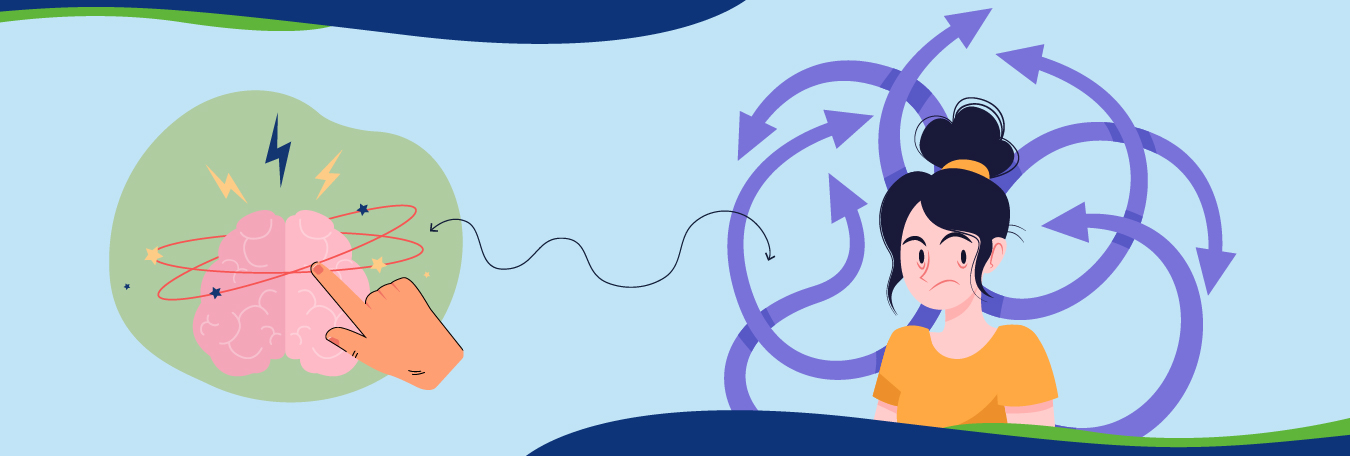ADHD is a debilitating affliction that has a tendency to branch out as a derived mental condition such as the one called Executive dysfunction ADHD. If you are wondering if you are suffering from executive dysfunction ADHD symptoms then you have come to the right place.
What is Executive Dysfunction ADHD?
Executive dysfunction ADHD is commonly confused as a chronic mental condition and one of the subtypes of the mental condition called ADHD but it is not the case. ADHD, also called attention-deficit/hyperactivity disorder, is simply the inability to focus on one particular task due to restlessness, procrastination, and irritability or simply out of boredom. It can be extremely debilitating as it can interfere with your daily life if you are affected. Executive dysfunction is another name given to ADHD but here the reasoning behind this made-up type of ADHD is that it happens when the brain has difficulty processing important functions related to memory, attention, and thinking(1). In other words, it is more related to the proper functioning that is needed for day-to-day activities than anything else. So, the next time you are asked a question like this, what is executive dysfunction ADHD, now you will obviously have the answer.
But that’s not just it, while many consider ADHD and executive dysfunction terms that can be used interchangeably, it can happen without ADHD, say from something like bipolar disorder or due to one of the autism spectrum disorders. To analyze it as a different component it is better to understand what executive dysfunction is, it helps to know more about executive functions. Usually, our main executive functions tend to be:
- Working memory.
- Cognitive flexibility.
- Inhibition control.
Usually, these skills are there to establish structures and strategies for managing everyday activities and to determine the actions required to drive the progress of these actions. But there is a reason, many believe executive dysfunction ADHD actually exists as the actions during executive dysfunction may be up and down depending on the feelings of the affected individual, whereas with ADHD, it’s a brain issue that doesn’t go away and is a lifelong condition. To make it simple, due to ADHD, executive dysfunction is lifelong while due to other mental conditions, it might be temporary. In ADHD, essentially all the cognitive processes such as working memory,
cognitive flexibility, or inhibition control are in a haywire situation.
Read More: Coping with ADHD Burnout
Types of Executive Dysfunction in Skills
As we have mentioned before, the skills that are required to ensure proper functioning are often the ones affected in individuals who are affected with ADHD.
Working memory
Working memory is the go-to memory that involves an action you are doing in the present state, such as reading this blog. This is your working memory doing its magic. Even the counting you do mentally is also considered to be part of the process that makes up working memory.
Cognitive flexibility
When it comes to executive dysfunction ADHD, it is the most affected component of the cognitive processes. It is the way you can shift your focus from one thing to another and how swiftly without being unproductive in the process. This helps us to adapt to our changing environment seamlessly. But in ADHD, it is essentially affected.
Inhibition control
This is the process that is responsible for managing your thoughts, actions, and even emotions. Unable to do so, which indeed usually happens due to executive dysfunction ADHD. We would be unable to control our impulses and thoughts without it. There are two main ways your inhibition control is affected when afflicted with executive dysfunction ADHD:
- Behavioral actions: This is the way you control your actions because you think you shouldn’t do them. An example of this is staying silent around an extremely rude person because they believe that trying to calm them down will result in confrontation.
- Interference: This is the way you drive your thought processes. It is basically all about assigning priority to different tasks based on the importance of the tasks you have at hand.
What Causes ADHD and Executive Dysfunction?
Science has not been completely able to map the causes of executive dysfunction and ADHD, other than the fact both are closely related. What could be the case though is how a range of different reasons can contribute to the causation of ADHD and executive dysfunction. ADHD basically means that you will indeed have executive dysfunction. But it could also be related to your problem with substance abuse, your genetic predisposition, or even due to other mental conditions such as autism spectrum disorder, depression, obsessive-compulsive disorder (OCD), or schizophrenia.

Another reason for executive dysfunction tends to be brain damage and degeneration. Underlying physical conditions like Alzheimer’s disease, brain tumors (including cancerous and noncancerous ones), Cerebral hypoxia (brain damage from lack of oxygen), or Dementia and frontotemporal dementia, can all contribute to the executive dysfunction problem in the mind due to the deteriorating nature of the brain when it is afflicted with these diseases.
Read More: Normal Brain Vs ADHD Brain – How We Are Wired Differently
Treating Executive Dysfunction in ADHD
As we have said, executive dysfunction in ADHD is the primary symptom but it could also be present due to a range of other underlying conditions. So the first step toward treatment should be the proper diagnosis of the underlying problem, even if it could still be ADHD, the predominant cause of executive dysfunction. Luckily, treatment through psychotherapy and medication is available for mental health conditions and different procedures for physical conditions like the brain’s degenerative diseases.
For Mental Health Conditions
It’s not uncommon for treatment to combine psychotherapy with medication treatment for a two-pronged approach against fighting the symptoms of different mental conditions such as ADHD and executive dysfunction.
Psychotherapy (“talk” therapy)
Cognitive behavioral therapy (CBT), which is a very common form of psychotherapy for conditions such as ADHD that cause executive dysfunction can be used for seamless treatment(2). It can be used to help patients come to terms with their negative thought processes related to their mental conditions.
Medication
Medication is essentially dependent on the underlying condition. Examples of medication types include stimulants (especially for ADHD), antidepressants, and antipsychotics. To properly monitor and manage medication, you can use psychiatric medication management.
For Physical Conditions
These tend to vary but each one of these has its own benefit in eradicating executive dysfunction that tends to make things more difficult for the affected individual. But it can be avoided by following certain guidelines:
Read More: Defining ADHD Paralysis
Get a screening test
Prevention is always better than cure. Screening tests can ensure that a disease is caught in its initial stage or even before that as family history can provide clues to what is to come.
Safety first
Physical conditions like brain damage that also causes executive damage can be avoided if you prioritize safety. For example, wear a helmet when riding a bike or use the safety equipment during construction work scenarios.
Treat infections
Infections, especially the ones that happen in the ears or eyes can be extremely debilitating for the brain. If these infections reach the brain, chances are they will cause something similar to executive dysfunction ADHD symptoms.
Conclusion
We hope you have an idea of what exactly is executive dysfunction ADHD. For starters, it is not a subtype of ADHD, that we are sure of. Additionally, we provided explanations about how it can be treated with options like psychotherapy or medication. You can get both of these along with alternative methods like telepsychiatry for your executive dysfunction and ADHD problems or other mental conditions such as depression or bipolar disorder through the Inland Empire Behavioral Group.




